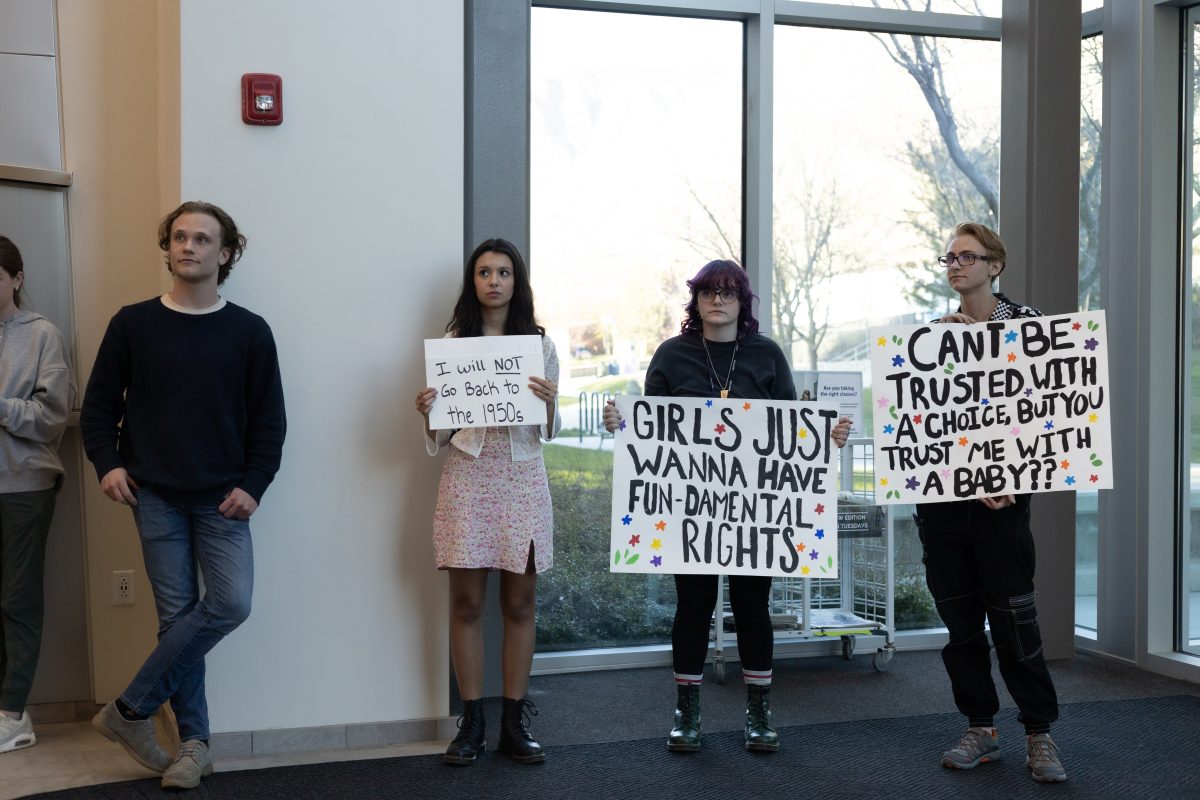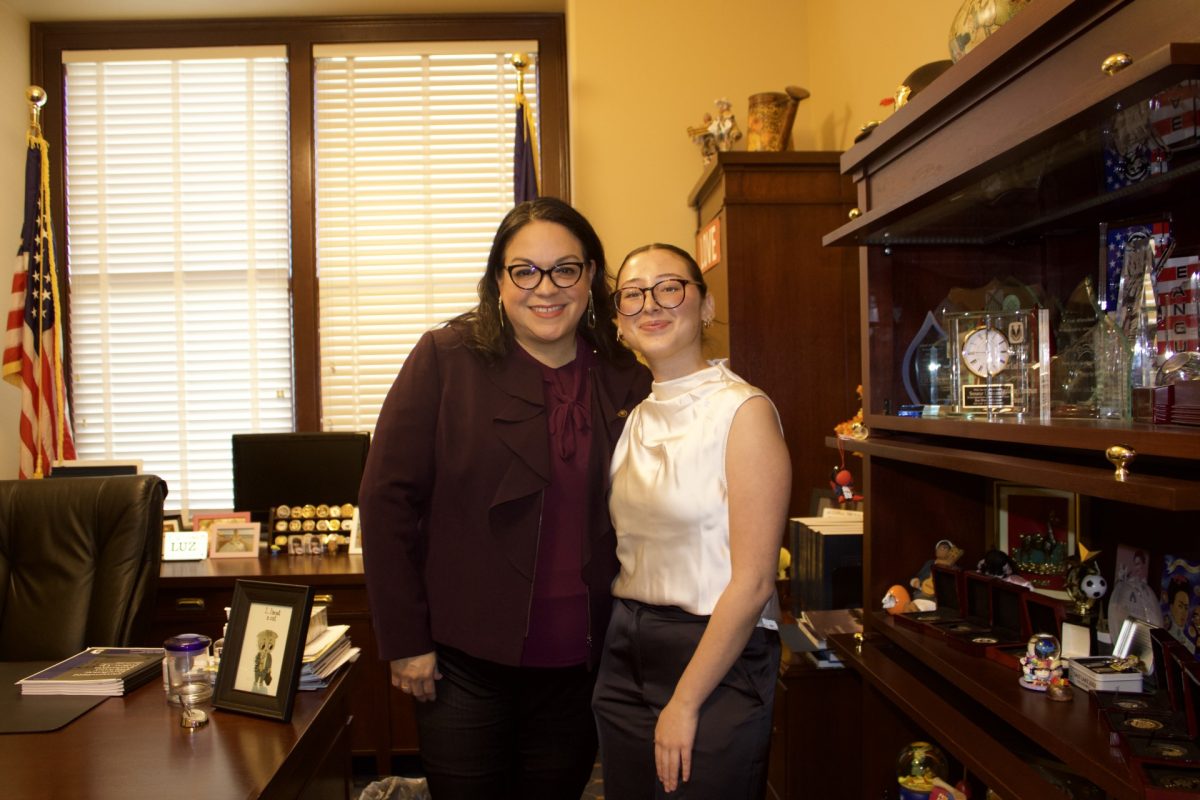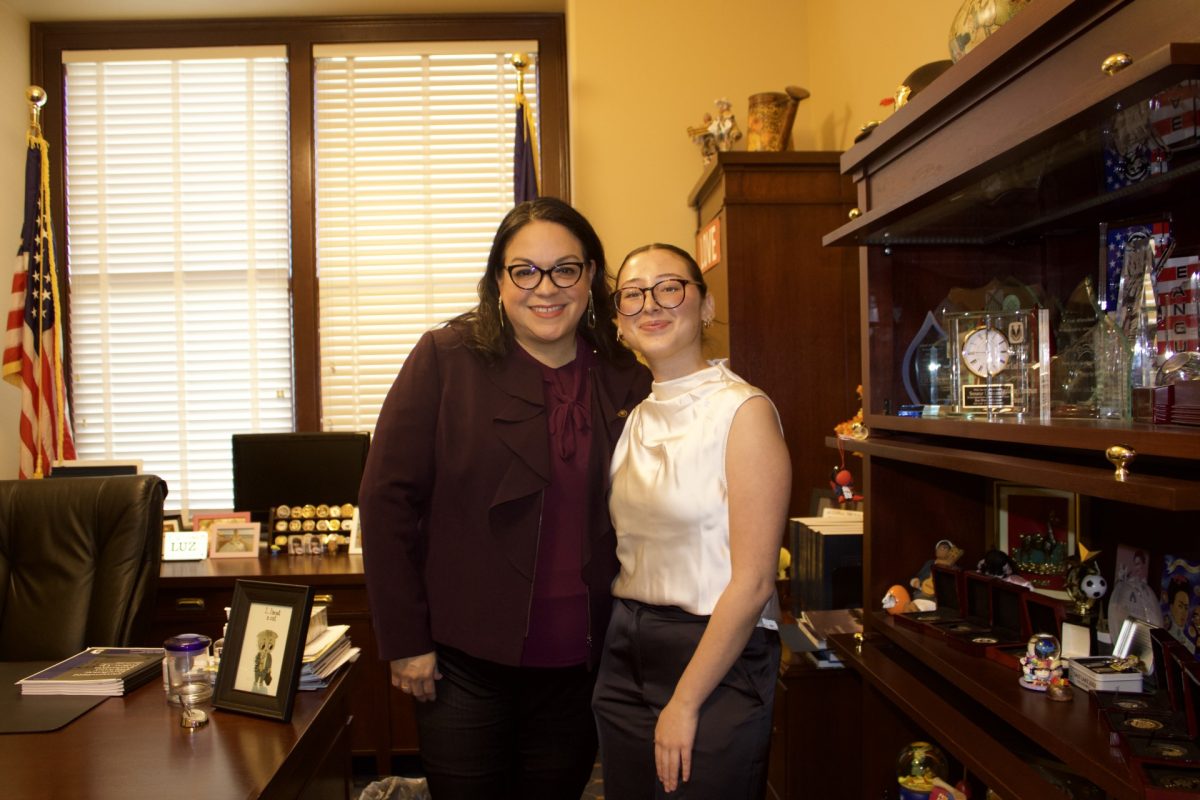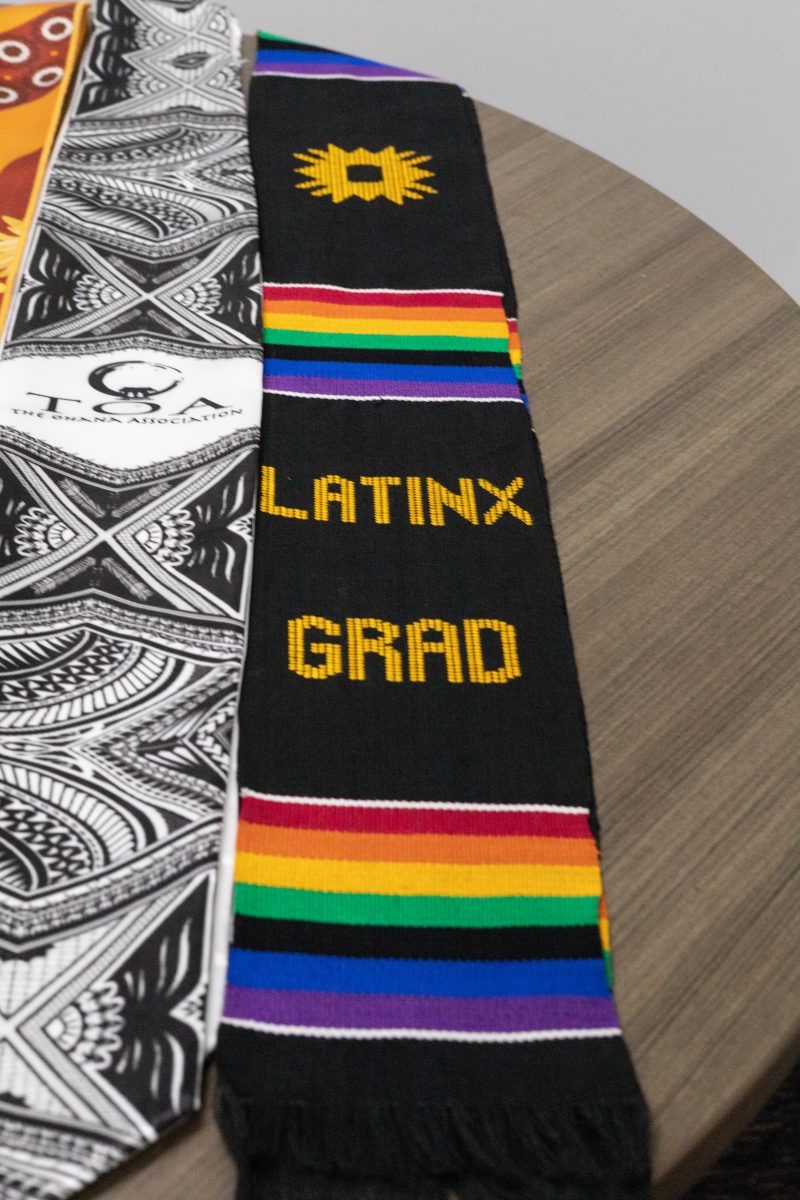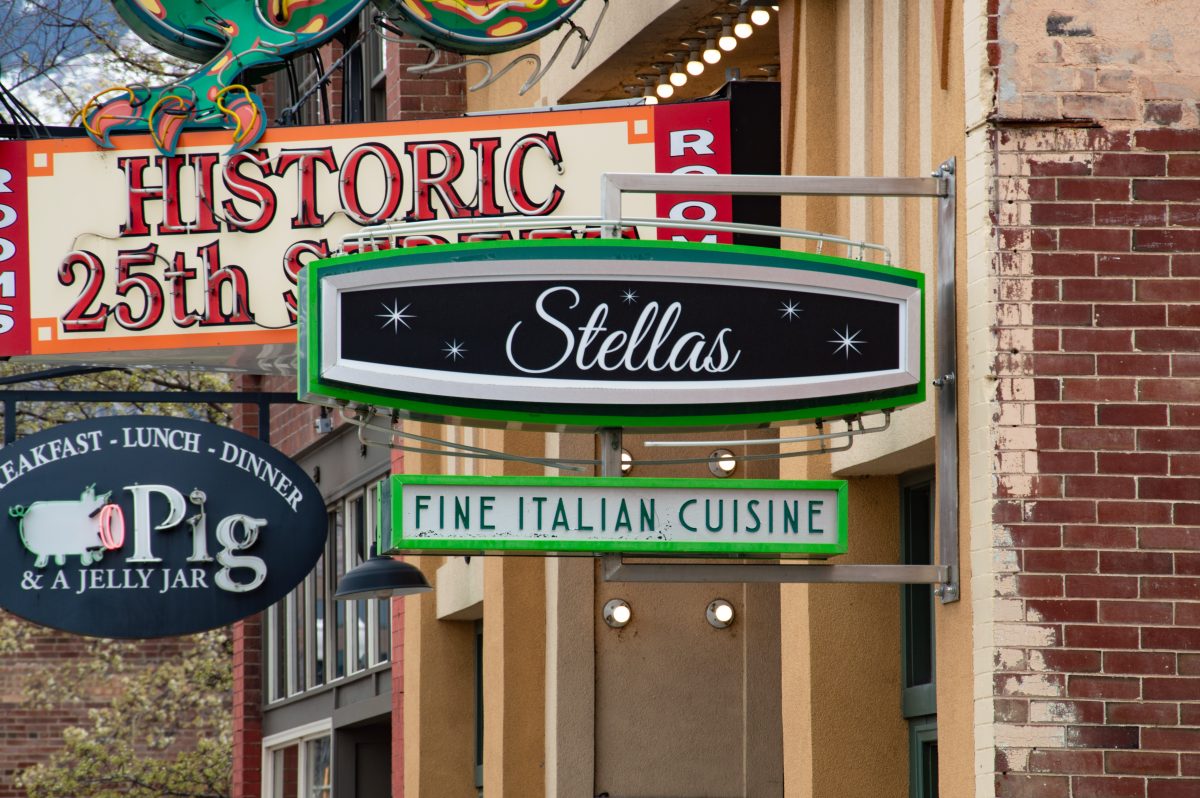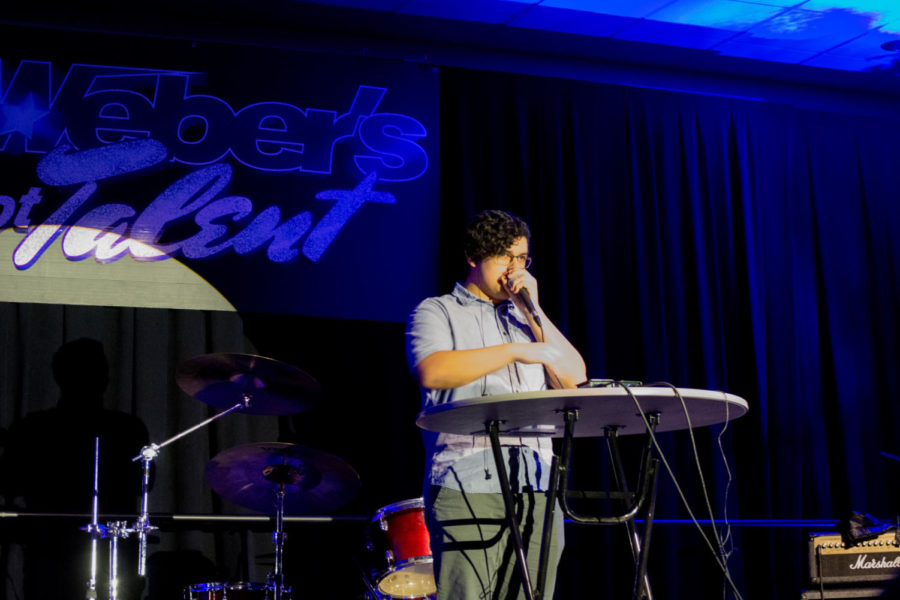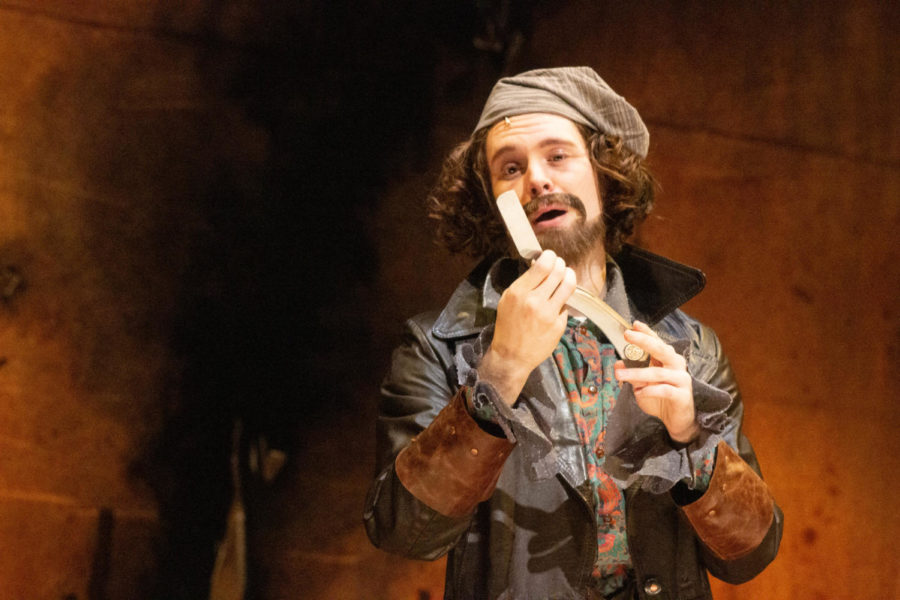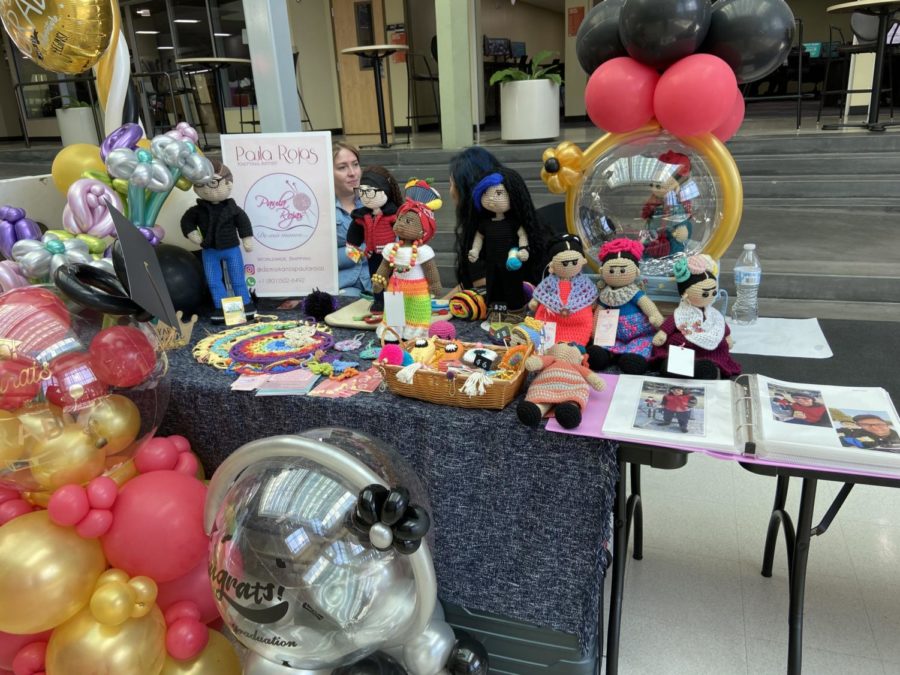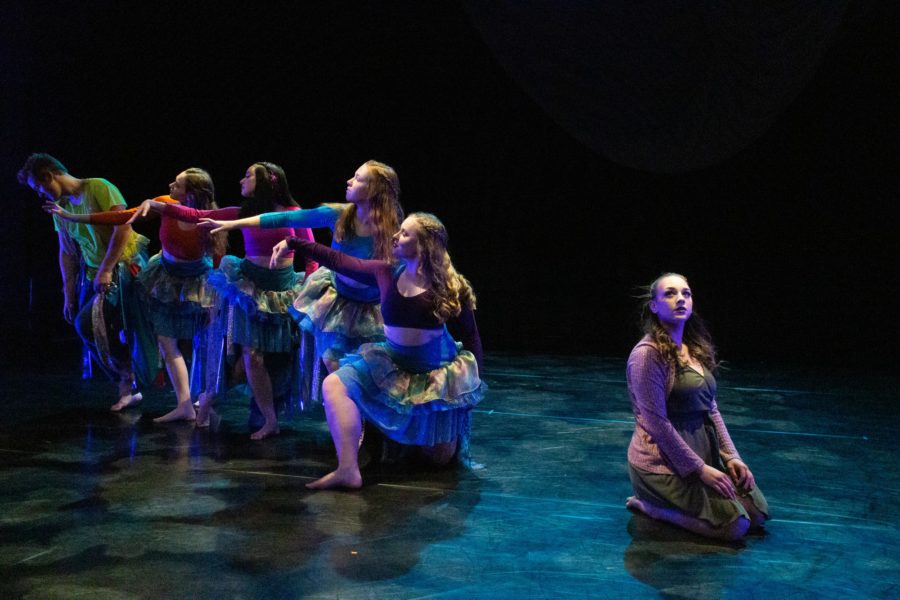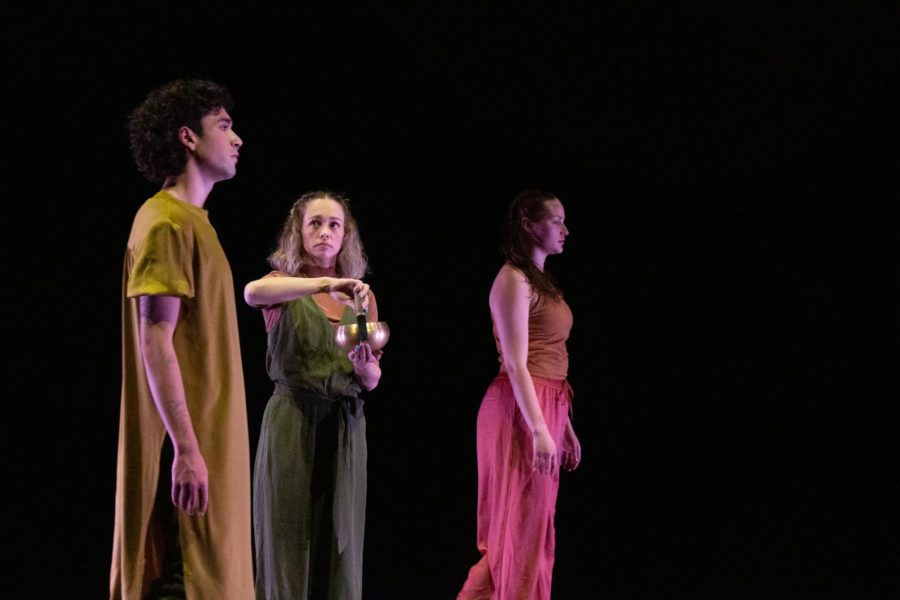The Weber State University Performing Arts Department’s 2011-12 theater season came to a close with the showing of a completely student-run production, “The Cradle Will Rock.” Associated Actors and Technicians put on the show.
“I love the student-directed stuff here, just because it really shows the intense dedication,” said Shauna Ross, who recently joined AAT and was house manager for the performances, enabling her to see the show several times.
Trent Cox, a theater education major at WSU, directed the show. According to Cox, several difficulties go along with holding the title of student director.
“It’s difficult kind of drawing that line between ‘now I’m director, and now I’m your friend,'” Cox said. “But I feel like there wasn’t any issues with that or anything. I wouldn’t say just as a student director, but as a director in general, just the material is difficult. It’s a 75-year-old play, and just relating it to nowadays is a great challenge.”
“The Cradle Will Rock” was written by Marc Blitzstein and was originally part of the Federal Theater Project in the 1930s, a program used to put theaters back to work during the Great Depression. However, the program had some past problems with censorship, and shortly before it was about to open, the show was shut down.
“The cast and director (Orson Welles) gathered the opening-night audience, the cast and one piano, and walked 21 blocks to a new theater, and performers were told they were going to be arrested if they performed the show on stage because of ‘political overtones,'” Cox said.
He said Blitzstein just got up and started performing the show’s music by piano, and one by one, the cast members got up from the audience and sang their parts, performing the entire opening show within the audience.
“I just got to thinking what a great experience that would be as an audience member, as a performer, as just someone in the theater at that time, so I wanted to put that into nowadays and relate that to now,” Cox said.
The in-audience feel of the performance might have been helped along by the live piano performance of all the show’s music by music director Rick Rea, and even having the cast perform its own side effects offstage while the show continued.
The show is about an average American town in the 1930s called Steeltown, USA, which is being rocked by the efforts of an average worker, Larry Foreman, to form a laborers’ union. This doesn’t go over well with greedy steel tycoon Mr. Mister, as he’s gone out of his way to own the entire town, from the preachers to the press, in order to make sure this very thing doesn’t happen.
Foreman is arrested giving a public speech about the union, along with a group of Mister’s various henchmen called the Liberty Committee, who were sent to break up the speech and are awaiting Mr. Mister to bail them out for their loyalty. Each of their stories are told of how they sold their souls for Mr. Mister’s money, and, in the end, it is left up to the people to decide whether the union or a corporate agenda will succeed.
“Mr. Mister, who’s like the government, he owns everything, he pays everyone off to say what he thinks is good to help him personally,” said Addison Welch, the graduating theater performance student who played Larry Foreman. “But we need to fight for what we know is true and what we know is right.”
Welch said he believes the show deals with some of the issues faced in today’s politics, and even though they aren’t exact, he still finds them to be applicable.
“I’ve had to really be honest and truthful and pull from what I know is true from the situations happening in our media right now, our life right now, and apply to this character in the ’30s,” Welch said.
The show closed last Saturday, but AAT is open for all students to join.
“I think the central theme is talking about those weaker people, the people that weren’t part of the richer class,” Ross said. “This theme is about those people that got tired of being suppressed. They got tired of being pushed down, and they were able to build up into these unions and help to support what America is today and the rights that we have.”




